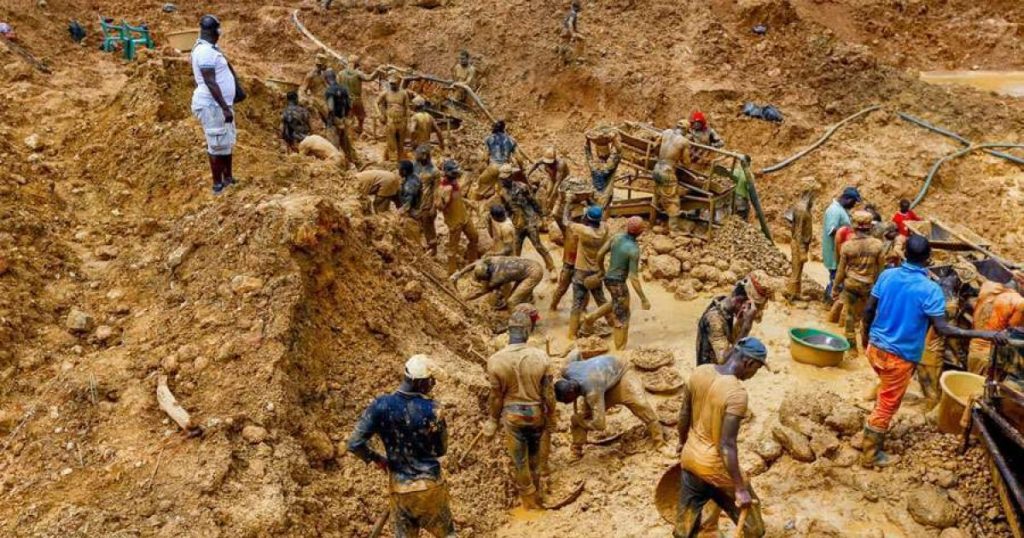The essence of community engagement in mining is not merely a facade but a pragmatic approach that has seen the light of day in numerous Tanzania mining sites. It’s an ethos that propagates a symbiotic relationship between the mining entities and the local communities. The mining sites burgeon into hubs where industrial ambitions dovetail with communal aspirations, forging a milieu of shared prosperity.
One striking epitome of this synergy is the local employment and skill development programs initiated by mining firms. By opening the doors to local employment and fostering skill development, the mining entities are not merely tapping into the local human resource pool. Still, they are igniting a flame of self-reliance and sustainable growth within the community.
The narrative finds a profound resonance in the case of the Geita Gold Mine. The mining entity has orchestrated a robust local content program that has seen a substantial portion of its procurement budget funnelled towards local suppliers. This initiative has bolstered the local economy and created a ripple effect of entrepreneurial vigour among the local populace.
Equally compelling is the Buzwagi Gold Mine, which has embraced the ethos of environmental stewardship alongside local community engagement. Through reforestation initiatives and water conservation projects, the mine has etched a narrative of responsibility, intertwining its industrial pursuits with the environmental and societal well-being of the local community.
The mining sector in Tanzania has seen some notable instances of community engagement and local content development. A few case studies that highlight these aspects are as follows:
Golden Pride Open-pit Gold Mine
The case study of the Golden Pride open-pit gold mine in Tanzania illustrates how closure and post-mining transition can be conducted effectively and inclusively with local community engagement. This initiative involved the mine, the Government of Tanzania, and local communities working together to define and implement the closure plan for the operation.
Key steps included defining post-mining land use, implementing closure activities, and supporting opportunities for post-mining resilience of communities. Lessons learned from this case emphasized the importance of early engagement with communities, adaptable post-mining land use plans, progressive reclamation, addressing post-closure site safety and security, and applying international best practices to mine closure.
Local Content Development in the Mining Sector
Over the last ten years, local content in the Tanzanian mining sector has gradually gained momentum among government bodies, mining companies, and civil society organizations. The focus has been on fostering local employment, procurement from local suppliers, and supporting local businesses in the mining value chain.
According to Tanzanian mining law, The local content plan submitted to the Commission by a contractor, subcontractor, licensee or other allied entity shall contain detailed provisions-
(a) to ensure that (i) first consideration is given to services provided within the country and goods manufactured in the country where the goods meet the specifications of the mining industry as established by the Standards Authority or by other internationally acceptable standards; (ii) qualified Tanzanians are given first consideration for employment; and (iii) adequate provision is made for the training of Tanzanians on the job; (b) on how the contractor, subcontractor, licensee or other allied entity intends to guarantee the use of locally manufactured goods where the goods meet the specifications of the mining industry.
(2) A collective bargaining agreement entered into by a contractor, subcontractor, licensee or other allied entity regarding the terms and conditions of employment of an association of employees shall follow the Employment and Labour Relations Act. The presence of such laws ensures good community engagement and prioritizing of locals.
A comprehensive study titled ‘Realizing Local Content Development in Tanzania: Suggestions arising out of ‘Golden’ Voices from Geita and Mara Regions’ was conducted to identify best practices for local content implementation in the mining sector. The research, published in June 2023 by Haki Rasilimali in partnership with the International Peace Information Service (IPS), aimed to enhance citizens’ participation and benefits from mining value chains at the grassroots level. Data was collected from 60 respondents, split evenly between North Mara and Geita, revealing that many locals found jobs in large-scale mines inaccessible and struggled to tap into profitable supply value chains.
The study’s findings highlighted a general lack of understanding among community members about value addition in the mining sector. Most respondents felt that the government was insufficiently ensuring that mining companies complied with local content requirements. The results also indicated that local communities faced challenges accessing supply value chains in mines, with many supplying low-value goods like vegetables and fruits. Factors such as lack of transparency in tendering processes, complex negotiations, and payment delays were cited as barriers to local content development.
Barrick Gold, a prominent mining company, provided insights into the challenges and potential solutions. Their deputy public relations manager, Helmence Christopher, mentioned that while the youth in mining project areas are keen to seize opportunities, the mines cannot accommodate everyone. Barrick Gold initiated an agri-business project in North Mara to address this, engaging 100 citizens in the first phase. This project focuses on vegetable and fruit cultivation, offering an alternative source of income and reducing potential conflicts with surrounding communities.
To conclude, the journey towards realizing the full potential of local content development in Tanzania’s mining sector is multifaceted, requiring collaborative efforts from both the government and private entities. The studies and initiatives highlighted underscore the pressing need to bridge the knowledge gap at the grassroots level and provide alternative avenues for economic empowerment.
As Tanzania stands at the cusp of significant industrial growth, ensuring that local communities are not just beneficiaries but active participants in this growth story is paramount. Through targeted training, transparent processes, and innovative projects like Barrick Gold’s agri-business initiative, the nation can pave the way for a more inclusive and prosperous future for all its citizens.

